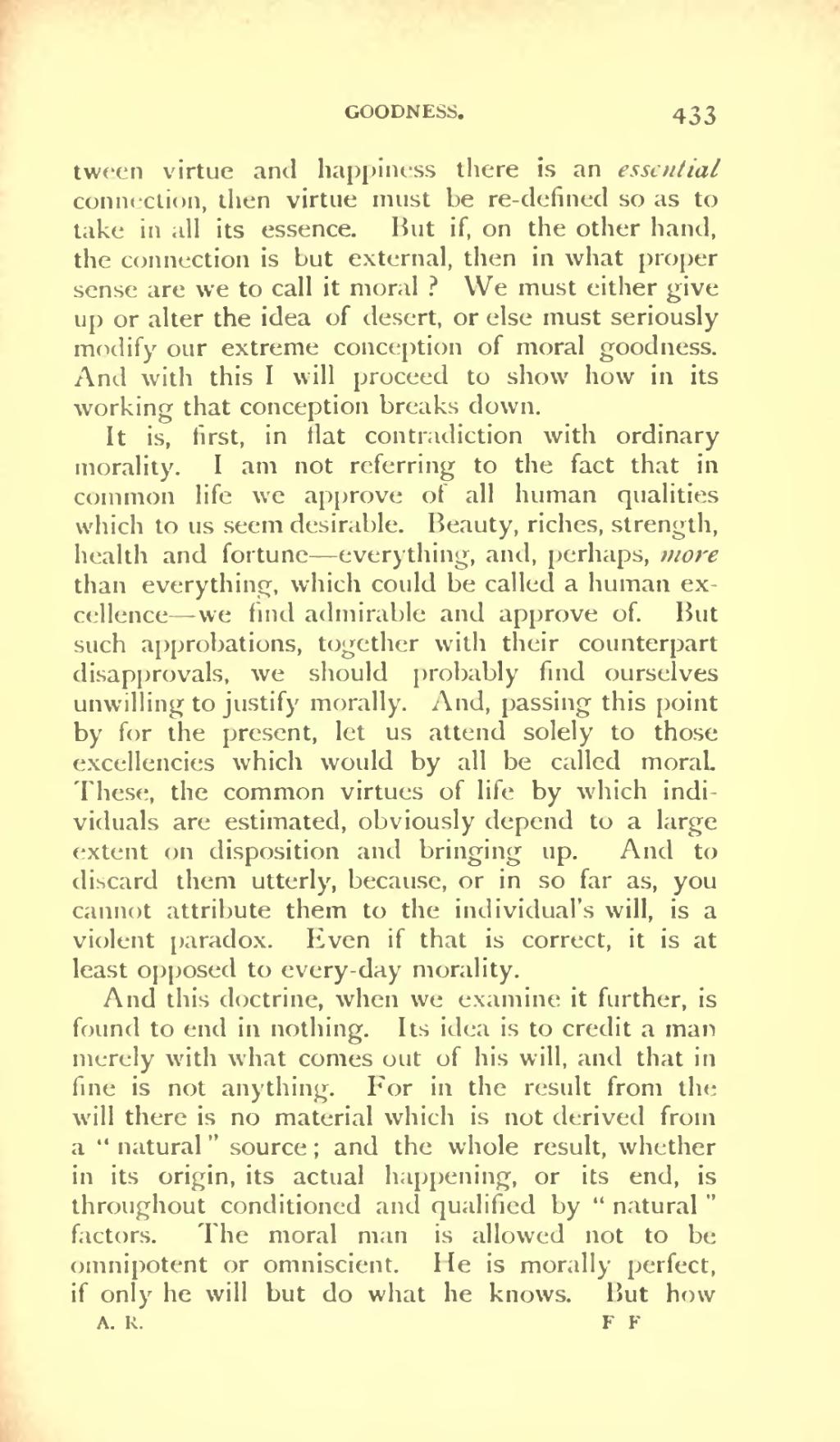tween virtue and happiness there is an essential connection, then virtue must be re-defined so as to take in all its essence. But if, on the other hand, the connection is but external, then in what proper sense are we to call it moral? We must either give up or alter the idea of desert, or else must seriously modify our extreme conception of moral goodness. And with this I will proceed to show how in its working that conception breaks down.
It is, first, in flat contradiction with ordinary morality. I am not referring to the fact that in common life we approve of all human qualities which to us seem desirable. Beauty, riches, strength, health and fortune—everything, and, perhaps, more than everything, which could be called a human excellence—we find admirable and approve of. But such approbations, together with their counterpart disapprovals, we should probably find ourselves unwilling to justify morally. And, passing this point by for the present, let us attend solely to those excellencies which would by all be called moral. These, the common virtues of life by which individuals are estimated, obviously depend to a large extent on disposition and bringing up. And to discard them utterly, because, or in so far as, you cannot attribute them to the individual’s will, is a violent paradox. Even if that is correct, it is at least opposed to every-day morality.
And this doctrine, when we examine it further, is found to end in nothing. Its idea is to credit a man merely with what comes out of his will, and that in fine is not anything. For in the result from the will there is no material which is not derived from a “natural” source; and the whole result, whether in its origin, its actual happening, or its end, is throughout conditioned and qualified by “natural” factors. The moral man is allowed not to be omnipotent or omniscient. He is morally perfect, if only he will but do what he knows. But how
